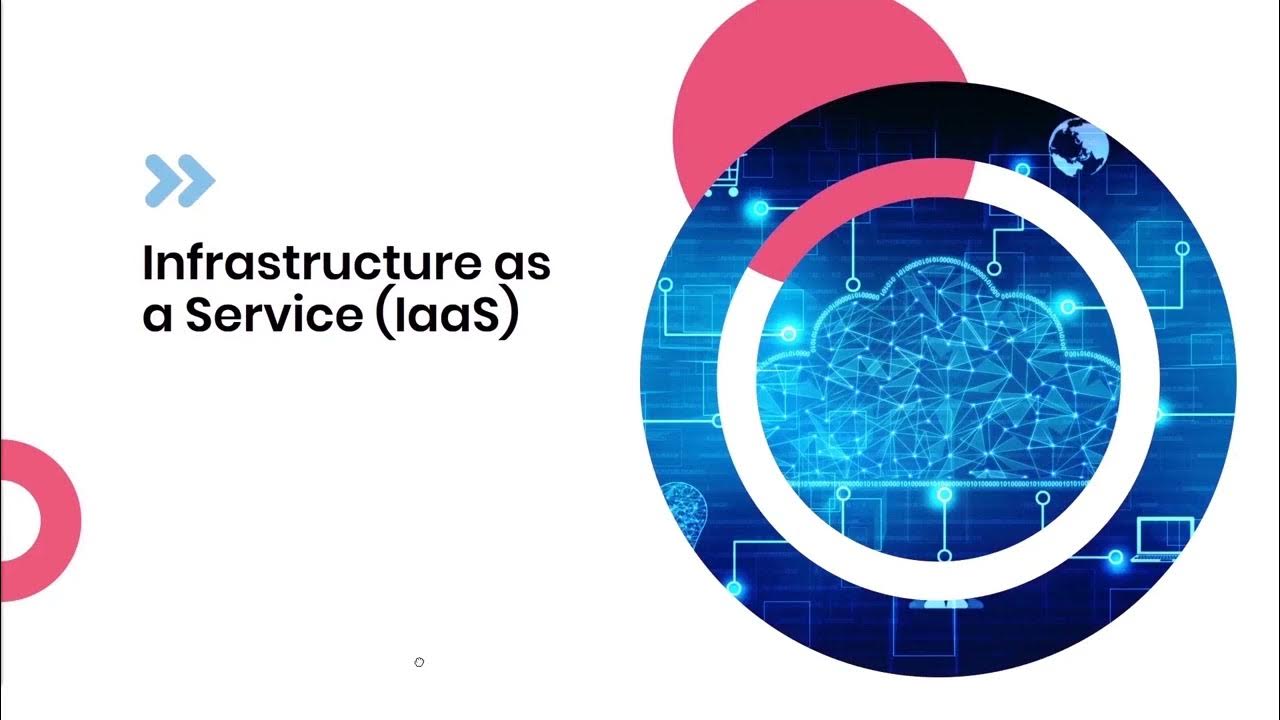What is Cloud Computing?
Summary
TLDRThis video explains the concept of cloud computing, detailing its evolution from traditional web hosting on personal machines to scalable solutions offered by cloud providers like AWS, Azure, and Google Cloud. It discusses the challenges of managing physical servers, including hardware costs and maintenance, and introduces different cloud service models such as IaaS, PaaS, and SaaS. The video highlights the advantages of cloud computing, including elasticity and uptime, while also addressing concerns around security and costs. Finally, it explores the distinction between public, private, and hybrid clouds, showcasing their importance in modern business operations.
Takeaways
- ☁️ Cloud computing refers to a network of servers that store and manage data remotely, making it accessible over the internet.
- 💻 Early web development involved hosting websites on local machines, which limited accessibility due to the need for a public IP address.
- 🔌 A laptop is not a reliable option for hosting websites due to power outages and hardware limitations, leading to downtime.
- 🖥️ Building a dedicated server requires significant investment in hardware, networking, and continuous maintenance.
- 📈 Scaling server capacity to handle traffic spikes (e.g., during sales) can lead to wasted resources when demand decreases.
- 🏢 Cloud service providers like Amazon AWS, Microsoft Azure, and Google Cloud offer managed server solutions, reducing the need for businesses to invest in physical infrastructure.
- 📊 Cloud services offer elastic scaling, allowing businesses to pay for computing power based on actual usage rather than a fixed capacity.
- 🔒 Data security is a concern with public clouds, as sensitive information may be shared across multiple tenants and could be vulnerable to breaches.
- 🏰 Private clouds provide more control and security for sensitive data but require a higher investment and maintenance overhead.
- 🌉 Hybrid clouds combine public and private cloud solutions, allowing companies to balance cost, flexibility, and data security.
Q & A
What is cloud computing?
-Cloud computing refers to a network of remote servers that store, manage, and process data, rather than relying on local servers or personal computers.
Why is cloud computing preferred over traditional hosting methods?
-Cloud computing eliminates the need for businesses to invest heavily in physical hardware and infrastructure, offering scalable resources and reduced downtime.
What challenges arise when hosting a website on a personal computer?
-Using a personal computer for hosting can lead to downtime due to power issues, hardware failures, or maintenance tasks, and may not support the required computing power for high traffic.
How does the public IP address work in hosting a website?
-A public IP address allows external users to access a website hosted on a server, differentiating it from a private IP address used within local networks.
What is the difference between IaaS, PaaS, and SaaS?
-IaaS (Infrastructure as a Service) provides virtualized computing resources, PaaS (Platform as a Service) offers a platform for developing applications without managing hardware, and SaaS (Software as a Service) delivers software applications via the internet.
What is elastic scaling in cloud computing?
-Elastic scaling allows businesses to automatically adjust their cloud resources based on demand, scaling up during peak times and down during low usage periods.
What are the security concerns associated with public cloud services?
-Public cloud services can pose security risks, especially when sensitive customer data is stored, as these services are accessible to multiple users and can be vulnerable to breaches.
What is a hybrid cloud?
-A hybrid cloud combines both public and private cloud services, allowing organizations to manage sensitive data on a private cloud while utilizing public cloud resources for less critical operations.
Why might some companies revert from cloud services to on-premise solutions?
-Companies may return to on-premise solutions due to unexpected costs, challenges in optimizing cloud services, or a lack of control over their data in public clouds.
What is serverless computing?
-Serverless computing allows developers to build and run applications without managing server infrastructure, automatically handling scaling and resource allocation.
Outlines

このセクションは有料ユーザー限定です。 アクセスするには、アップグレードをお願いします。
今すぐアップグレードMindmap

このセクションは有料ユーザー限定です。 アクセスするには、アップグレードをお願いします。
今すぐアップグレードKeywords

このセクションは有料ユーザー限定です。 アクセスするには、アップグレードをお願いします。
今すぐアップグレードHighlights

このセクションは有料ユーザー限定です。 アクセスするには、アップグレードをお願いします。
今すぐアップグレードTranscripts

このセクションは有料ユーザー限定です。 アクセスするには、アップグレードをお願いします。
今すぐアップグレード関連動画をさらに表示
5.0 / 5 (0 votes)






